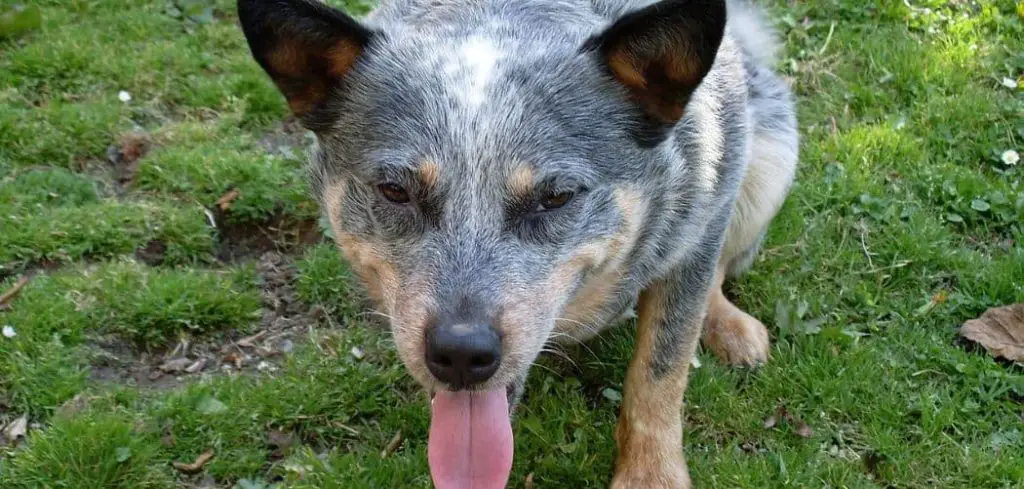When your dog is panting heavily and also vomiting bile, it can be alarming and stressful to witness. These two symptoms appearing together often signal that something isn’t quite right, and it’s important for dog owners to take them seriously.
While occasional panting or an upset stomach may not seem unusual on their own, the combination raises concern and should not be overlooked.
We outline what this pairing of symptoms could mean for your dog, what steps you can take at home, and when it’s time to seek veterinary help.
Table of Contents
Dog Panting and Vomiting Bile — Why It Happens
Dog panting and vomiting bile can signal anything from mild digestive upset to serious illness. Dogs may pant due to pain, stress, heat, or illness, while vomiting bile often points to an empty stomach, gastrointestinal irritation, or more severe health issues.
Common triggers include gastritis, pancreatitis, heatstroke, intestinal blockages, and systemic diseases that affect both breathing and digestion.
These symptoms occurring together should never be ignored, as they may escalate quickly without prompt care.

Dog Panting and Vomiting Bile: Common Causes
Gastritis
Gastritis is inflammation of the stomach lining, often caused by eating spoiled food, foreign objects, or irritating substances.
This condition can make dogs nauseous, leading to the expulsion of yellow or green bile, especially when the stomach is empty. The discomfort and abdominal pain can also cause panting.
If untreated, gastritis can lead to dehydration and ongoing distress.
Read more: Dog Panting and Being Sick (Here’s why)
Pancreatitis
Pancreatitis is an inflammation of the pancreas, often triggered by fatty foods, certain medications, or underlying conditions.
Dogs with pancreatitis often vomit bile due to digestive enzyme disruption. Severe abdominal pain, fever, and lethargy are common, and the discomfort can cause heavy panting.
Pancreatitis can be life-threatening if not addressed promptly.
Heatstroke
Excessive heat or overexertion can cause heatstroke, which can rapidly escalate in dogs.
Panting is the body’s primary cooling method, but when heatstroke sets in, vomiting bile can occur due to organ stress and dehydration.
Heatstroke is an emergency, requiring immediate veterinary attention to prevent collapse or death.
Intestinal Blockage
A blockage from a swallowed toy, bone, or other object can halt food movement through the intestines.
This leads to vomiting bile as the body tries to expel what can’t pass. Pain from the blockage causes panting and restlessness.
This condition is urgent — blockages require swift veterinary intervention.
Liver Disease
The liver plays a key role in digestion and detoxification.
When diseased, it can cause bile-related vomiting, lethargy, and poor appetite. Panting may result from discomfort, toxin buildup, or systemic effects.
Liver disease may develop slowly or appear suddenly, but both require medical evaluation.
Addison’s Disease
Addison’s disease affects adrenal hormone production and can cause a range of vague but serious symptoms.
Vomiting bile may occur alongside weakness, low appetite, and panting due to low blood pressure or stress.
Without treatment, an Addisonian crisis can be fatal.
What to Do If Your Dog Is Panting and Vomiting Bile
If your dog experiences both symptoms, withhold food for a few hours but provide small amounts of fresh water to prevent dehydration.
Offer a bland diet such as boiled chicken and rice once vomiting subsides.
Ensure your dog rests in a cool, quiet environment. Avoid exercise until they recover.
Monitor for worsening signs such as repeated vomiting, weakness, or changes in breathing.
When to Call or Visit Your Vet
Seek immediate veterinary help if your dog continues vomiting bile for more than 12 hours, has a distended abdomen, appears weak, or shows signs of pain.
Heatstroke, suspected blockages, or sudden collapse should be treated as emergencies.
Even mild cases warrant a vet visit if symptoms persist beyond a day or if your dog has underlying health issues.
Read more: Dog panting excessively (Here’s why)
Key Takeaway
Panting and vomiting bile in dogs can be a sign of anything from mild gastritis to life-threatening emergencies.
Early action is crucial — keep your dog hydrated, provide rest, and contact your veterinarian promptly for guidance.
With timely care, many causes can be managed successfully, ensuring your dog’s comfort and recovery.
